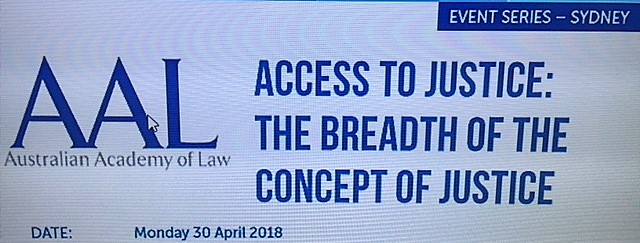Liquidators’ knowledge of bankruptcy law?

Do aspiring liquidators working in corporate insolvency practitioners really have an issue with the need to have some ‘exposure’ to bankruptcy in their required 4,000 hours experience? According to ASIC, and others, yes. I raised this at a recent conference,[1] prompted as I was by a practitioner querying, if not complaining, that to be […]
New NZ Insolvency Code of Professional Conduct

RITANZ, the Restructuring Insolvency and Turnaround Association of New Zealand, has released its Code of Professional Conduct for its members, described as being “the fundamental building block upon which the insolvency and restructuring profession sets and manages standards of professional conduct”. The Code will commence operation on 1 July 2018. The Code is released at a […]
Australian Insolvency Management Practice

The Australian Insolvency Management Practice of Wolters Kluwer/CCH was first published in 1985, at a time when insolvency law was under review by the Harmer Committee of the Australian Law Reform Commission and when it was developing as a discipline and a profession into a coherent whole. The Practice was a loose-leaf and on-line publication, […]
Registers of insolvency practitioners – and the alternative register

Under the changes introduced by the Insolvency Law Reform Act 2016, public registers of liquidators and trustees are established, on which disciplinary proceedings are to be recorded. Given a lack of transparency with the registers, the best source of information about those sort of proceedings is a public website, Sydney Insolvency News. Publicity of […]
Contempt of newspapers

Mr Dyson Heydon has had his useful views about political criticism of judges’ decisions published in what is known as the Murdoch press, the Australian newspaper, 21 March 2018. Given that politicians and the media speak a similar language, it may be that Heydon chose the Australian because he wanted to emphasise that even if […]
The reform of the intersection of trust and insolvency law – Killarnee

Once the trustee and insolvency lawyers have explained the law about the insolvency of trading trusts in the decision in Killarnee, [2018] FCAFC 40, there should be some attention given to the law reform comments of Justice Kathleen Farrell. Justice Farrell refers to one of the questions in the appeal as being the “subject of […]
A one year bankruptcy or a 5 year debt agreement – Senate recommendations

The reports of the Senate Legal and Constitutional Affairs Committee on the one-year bankruptcy (BAEI Bill) and the debt agreement bill (BADAR Bill)[1] have accepted the reduction in the period of bankruptcy to one year, subject to a curious recommendation based on the views of ASIC. That recommendation is to amend the Corporations Act “to […]
UK consultation on insolvency recovery and governance reforms

The UK government is consulting on law reform with a view to, in its words, “to improve the UK’s corporate governance framework to ensure the UK remains one of the best places to start and grow a business”, and perhaps to end one. Its insolvency regime “is another important part of the UK’s business environment and […]
The breadth of the concept of justice – Australian Academy of Law

Consistent with its objects, the Australian Academy of Law held a series of three public debates in 2017, in Sydney, based on the theme of ethics in law and business. They proved to be very popular, each one drawing large audiences, with many audience questions directed to the eminent panels leading the debates. The Academy […]
Release from bankruptcy of a deaf person

A deaf person, with some mental impairment, who was bankrupt was successful in having an objection to his discharge from bankruptcy cancelled. The objection was based on the ground that he had intentionally failed to disclose to the trustee his interest in a house, where he lived, left to him by his late mother in […]
Mining company rehabilitation costs as contingent liabilities – Senate hearing

The question of how to account for outstanding rehabilitation costs of mining ventures was again before the Senate Environment and Communications References Committee on 7 March 2018, in Perth WA. The submission of Environment Victoria explained the issue well. “Outstanding rehabilitation costs are currently financially reported as contingent liabilities, and are mostly disclosed in footnotes […]
Does Political Criticism of Judges Damage Judicial Independence?* a paper by Dyson Heydon

This is the title of a recent article written by Dyson Heydon AC QC on contempt of court, with a particular focus on the validity of the response of the judges of the Victorian Court of Appeal to criticism made of the Court’s decisions in 2017 by three government ministers. That Court of Appeal response[1] […]
The Federal Court and the Constitution – public lecture, 15 March, Canberra

A free public lecture on the Federal Court and the Constitution is being given at the ANU on this Thursday 15 March from 5.30 to 6.30pm. The presenter is Professor James Stellios, with commentary by Professor William Gummow AC. As the flyer explains, at its inception, the role of the Federal Court in the development […]
Traill’s 17th Annual Practical Insolvency Conference – a preview

Courts and governments and industry bodies are no doubt trying to have their remaining pending decisions and announcements out in time to be included in the already packed program of the Traill Insolvency Conference on 19-20 March. Some have succeeded – Amerind, Linc Energy, safe harbour, and the one -year bankruptcy; but for others still […]
Offence reporting in insolvency

In reporting breaches of the law to ASIC, and triggering action by ASIC, liquidators are not required to express any particular views or conclusions; or if they do so, they are not required to set out the basis for their views or conclusions, or even to have reasonable grounds for holding them before reporting. The […]
Restrictions on failed entrepreneurs – 3 years, one, or none?

The current inquiries and debates about whether we should reduce our period of bankruptcy in Australia from three years to one have revealed some lack of understanding of the rather straightforward division between personal insolvency, of an individual, and corporate insolvency, of a company, and the respective consequences of each. Here is how the law […]
Linc Energy’s insolvency disclaimer prevails over environmental demands

The success of the claims of Linc Energy’s liquidators against Queensland’s Environmental Protection Authority (EPA) won’t resolve the continuing legal and policy tension between insolvency law and environmental law. But the Queensland Court of Appeal’s decision is a step in a certain direction away from a general view that insolvency principles of equal sharing should […]
Some casual Friday comments on recent insolvency developments

This is a quick review of some on-going current issues in insolvency and related. Pending decisions The Commonwealth v Byrnes (Amerind) has now been decided, with a decision in Killarnee to follow. New Zealand The Amerind decision of the Victorian Court of Appeal will be of interest in New Zealand, where submissions close on 5 […]

